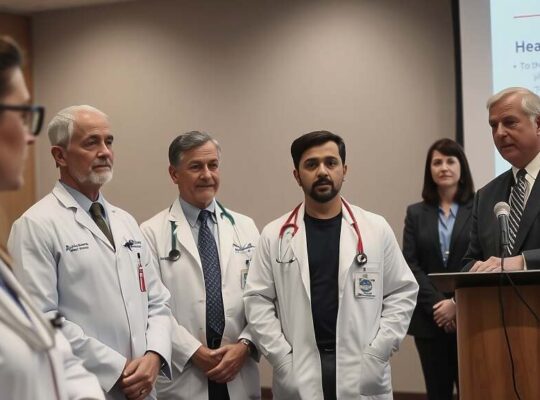A proposal to reduce the frequency of patient-doctor interactions in Germany is gaining traction, with a leading medical association voicing strong support. Markus Beier, chairman of the German Association of General Practitioners, welcomed the initiative announced by Federal Health Minister Nina Warken.
Minister Warken previously highlighted that Germans tend to visit doctors more often than individuals in comparable nations, questioning whether this translates to improved health outcomes or increased longevity. She emphasized the need for better coordination within the healthcare system to minimize unnecessary appointments while ensuring timely access for those requiring urgent care. She also reiterated her commitment to introducing a primary care physician system.
Beier underscored the growing complexities within the German healthcare landscape. He suggested that a significant number of patient visits stem from a lack of clarity regarding the appropriate specialist or healthcare provider for specific medical issues. He cautioned that, given the demographic shifts Germany is experiencing, maintaining the current level of doctor-patient contact may become unsustainable.
A key element of the proposed solution is the implementation of a comprehensive primary care physician system. Beier believes that designating general practitioners as the first point of contact for patients would create greater structure within the healthcare system, directing individuals to the suitable care setting efficiently. This approach, he argues, could not only reduce the overall number of appointments but also potentially enhance the quality of care provided.
Referencing successful models in other European countries, Beier expressed confidence that Minister Warken’s approach is on the right track. He further advocated for strengthening existing voluntary models, such as the ‘Hausarztmodell’-a physician-led primary care initiative already integrated within the German healthcare framework-and capitalizing on the mandated, house-centered care provided by statutory health insurers. Such an approach leverages existing infrastructure instead of initiating a completely new system, a course of action Beier deemed impractical given the time constraints.












